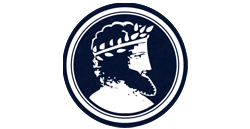When is cheating not cheating? How about when the game is so dirty everybody is guilty?
Bertel Schmitt spent three decades at VW, one of the most successful auto conglomerates in the world. For several years, he acted as the personal adviser to a prominent VW executive. He has maintained high-level relationships at the company, giving him a unique insider’s perspective into the car maker’s current plight. Schmitt has lived all over the world, witnessing China’s rise to the world’s car biggest market at first hand, and setting up a successful ad company in the US and Germany. He is now based in Japan co-running a respected car blog www.dailykanban.com as well as covering the car business for Forbes.
His background has given him a sniffer-dog sensitivity for ‘spin’and he detects numerous distortions in the outrage triggered by VW’s admission in late 2015 of rigging US tests on its diesel engines.
With his knowledge of the three greatest auto nations in the world (Japan, Germany and the US) Schmitt is able to weave together the true dynamics propelling the emissions scandal threatening to destroy VW.
First some tech background…
Although now banned in Japan (which went for petrol-hybrids), diesel has been the cornerstone of EU car makers’ efforts to meet tougher fuel economy and Cos emissions standards, thanks to (supposedly!) radical new diesel engine technology invented in 1998. There is one problem: the more Co2 (carbon dioxide) is reduced in a diesel engine, the more No2 (nitrogen dioxide) it gives off – a deeply poisonous substance to humans. Substituting one poison for a more toxic one seems a poor trade-off…
Like Japan, the US has shunned diesel, and sales are tiny – something VW was until recently hoping to change…
Governments will protect their auto lobbies, whatever the cost. The US case:
Schmitt believes that powerful foreign companies operating in the US risk becoming the target of smear campaigns (think BP, UBS, HSBC, etc). Thus, American car companies have been losing share to German and Japanese rivals for years, especially in key emerging markets like China. Schmitt relates that his European and Japanese industry sources grumble darkly about being the victims of selective justice – like Toyota’s self-accelerating car nightmare, which Schmitt believes was a case without foundation. Indeed, there is a clear conflict of interest in the US approach: following the 2008 financial crisis, Chrysler and GM are majority government-owned – the same government which is now punishing foreign auto firms.
But it is not only blatant US mercantilism at play.
Cheating? So is the referee!
Schmitt argues also that to say VW was caught ‘cheating’ does not make sense to anybody who understands the open secret of emissions ‘gaming’. Almost every foreign and domestic manufacturer in the US and in the European Union exploited gaping loopholes in the testing regime, allowed to do so by the very same agencies which are now ‘throwing the book’ at VW.
The scandal is arguably especially damaging to the EU, where governments have protected the powerful diesel lobby at the expense of their own citizens’ health (as opposed to foreign car firms). Helped by huge government subsidies, half the cars sold in the EU today are diesel, many of them in flagrant violation of these same governments’ own limitations of toxic No2 emissions. In the UK alone, the government was forced to admit to 24,000 premature deaths per year as a result of No2 emissions.
However, there is yet another layer – rivalries within VW itself.
The German auto industry resembles a family, and appears dominated by a small group of high-powered individuals. Ferdinand Piech, the former VW chairman who has also managed VW subsidiaries Audi and Porsche, exemplifies the type. A towering figure in the German auto world, his dislike of the just-ousted CEO Martin Winterkorn is famous, and some suspect he wants to use the emissions scandal to reverse a previous power-struggle – which Piech had lost, subsequently departing VW. But Piech is vulnerable – he was instrumental in helping VW ride a diesel boom in Europe, a boom which in retrospect appears to have been shockingly misguided.
Come to this event to hear from an iconoclastic and independent speaker provide authentic insights on the conflicted relationship between consumers, regulators and a key global industry. With the car industry essential to economic growth, technological progress and personal mobility, but also in the cross hairs of the environmental movement, the stakes could not be higher.
Delphi Network Salons attract executives interested in deeper than usual insights from expert speakers in cozy surroundings. Discussion and debate are prioritized, but decent wines are not neglected either.
Date: January 19th
Time: 7:00 – 8:30pm
Place: Ginza 1-13-8, 6F, Habiulu Ginza Building, Tokyo 〒104-0061
Map: Google Map Link
The entrance to the building is between an Italian men’s clothes shop BELVA and an Italian restaurant ISOLA BLU. There is also a gelato shop a 100 yards south-west of the building, so the whole street has rather an Italian theme. Please go inside to the back of the building for the lift, and press the intercom. Any problems call my mobile 080 205 70609 or Rosie’s on 070 2803 4217
Fee: 4,000 yen. Please remember to bring the correct change. A DN selection of wine & mineral water will be served…

